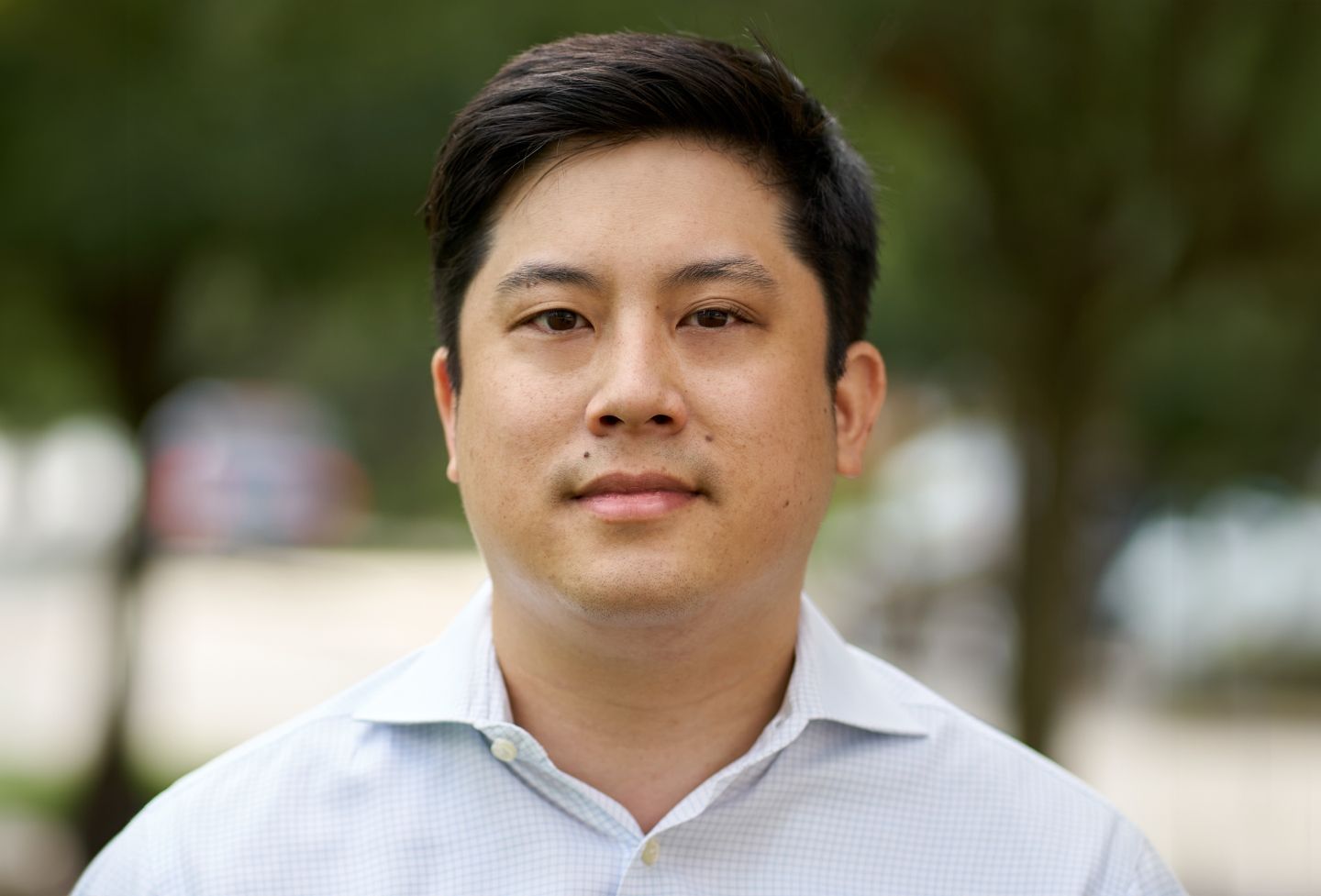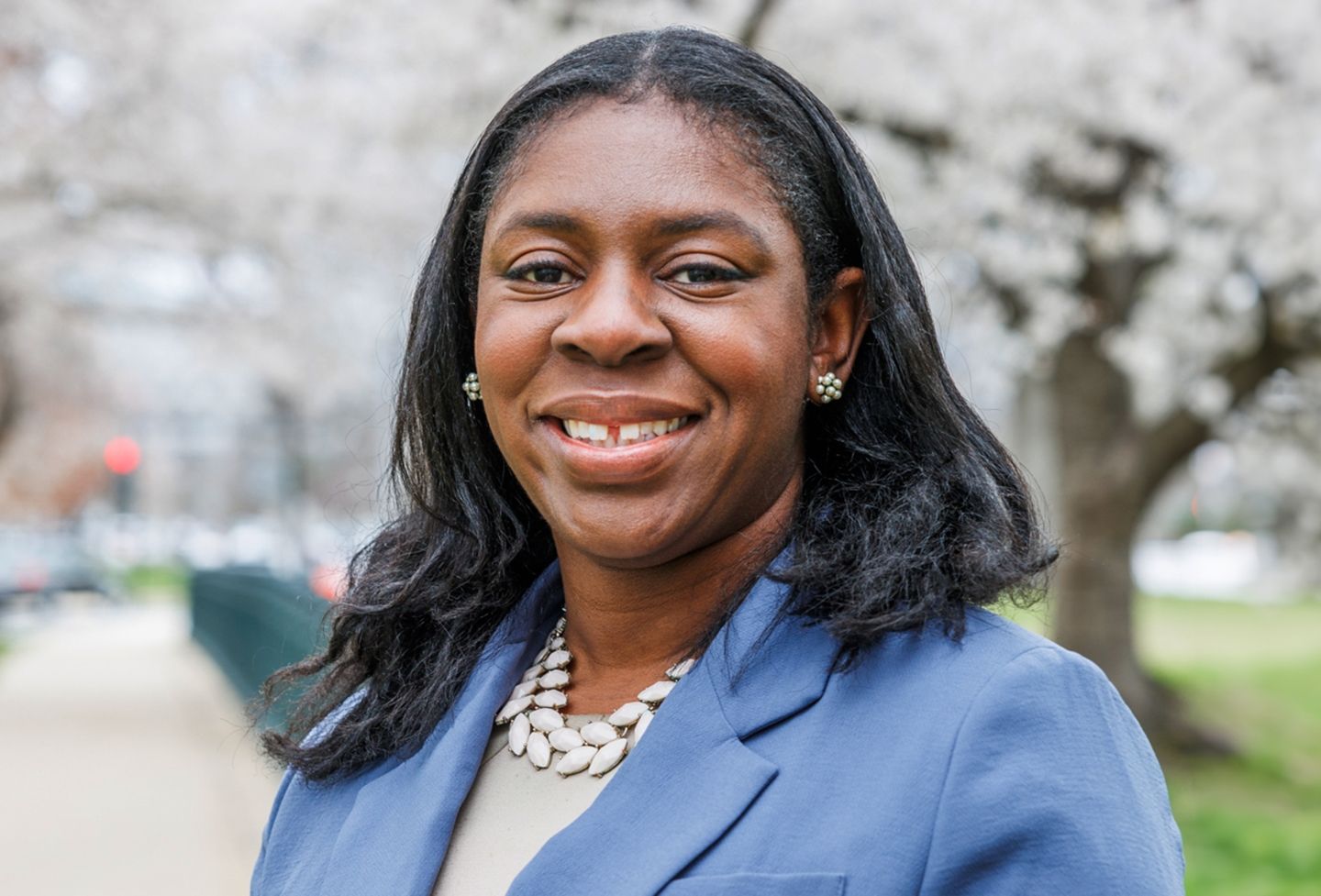Versteeg Brings Comparative Law Expertise — with Quantitative Focus — to Faculty
Mila Versteeg, a comparative law scholar who has applied quantitative methods to studying the world's constitutions, is joining the Law School faculty this summer as an associate professor of law.

Mila will add to our existing complement of empirically oriented legal scholars, but will be looking at different questions and with somewhat different methods from those now represented here or at most other law schools," said Professor Frederick Schauer.
Versteeg, who has an LL.M. from Harvard University and a law degree from the Netherlands' Tilburg University, expects to receive a D.Phil. in law from Oxford University (equivalent to a Ph.D.) this year as well.
A native of Amsterdam who speaks Dutch, German and English, Versteeg has lived in six different countries and has also studied public administration.
"I wanted to do something with some societal relevance or impact," Versteeg said of her choice to pursue a legal career.
Versteeg has been coding 200 variables from the constitutions of 200 countries written since 1946. The patterns she has found have spurred numerous ideas for articles and further research.
"One paper I have looks at whether constitutions have become more alike across the globe — whether there's been convergence in the world's constitutions," she said.
A second area of research includes sham constitutions — those created by dictatorial countries and that include promises of rights to citizens that prove meaningless. Versteeg said she is interested in finding out whether committing to a constitution can affect government behavior.
"Ultimately what I'm looking at is, when do constitutions work? When do they not work? Why do constitutions matter in some countries not others?"
Versteeg previously was an Olin Fellow and lecturer in law at the University of Chicago Law School, where she taught comparative legal institutions. At Virginia, Versteeg will teach a seminar on comparative constitutional design in the fall, with a focus on different disciplinary approaches to constitutional law and investigating real-world constitutional problems. In the spring she will lead a course in international human rights law, and in the following year she will also teach comparative law.
In addition to her quantitative work on constitutions, Versteeg also has some international human rights experience, including counseling human rights organizations at the Southern Africa Litigation Centre, training Supreme Court chief justices from 17 West African countries, and research at the U.N. Interregional Crime and Justice Research Institute. Versteeg said these experiences have contributed to her understanding of legal challenges in protecting human rights.
Versteeg said she was very excited to join the Virginia faculty.
"It seems like a terrific, vibrant intellectual environment, from what I've seen," she said. "I really like that the faculty is so collegial."
Schauer said Versteeg will be exploring the questions raised by constitutional transformations "with great insight and technical rigor."
"What Mila brings to this now-flourishing field is the application of very sophisticated tools of modern empirical social science," he said. "And because law is so concerned with formal rules and formal texts, Mila will be researching questions that go to the heart of understanding how law in general, and not just constitutional law, operates."
Founded in 1819, the University of Virginia School of Law is the second-oldest continuously operating law school in the nation. Consistently ranked among the top law schools, Virginia is a world-renowned training ground for distinguished lawyers and public servants, instilling in them a commitment to leadership, integrity and community service.


